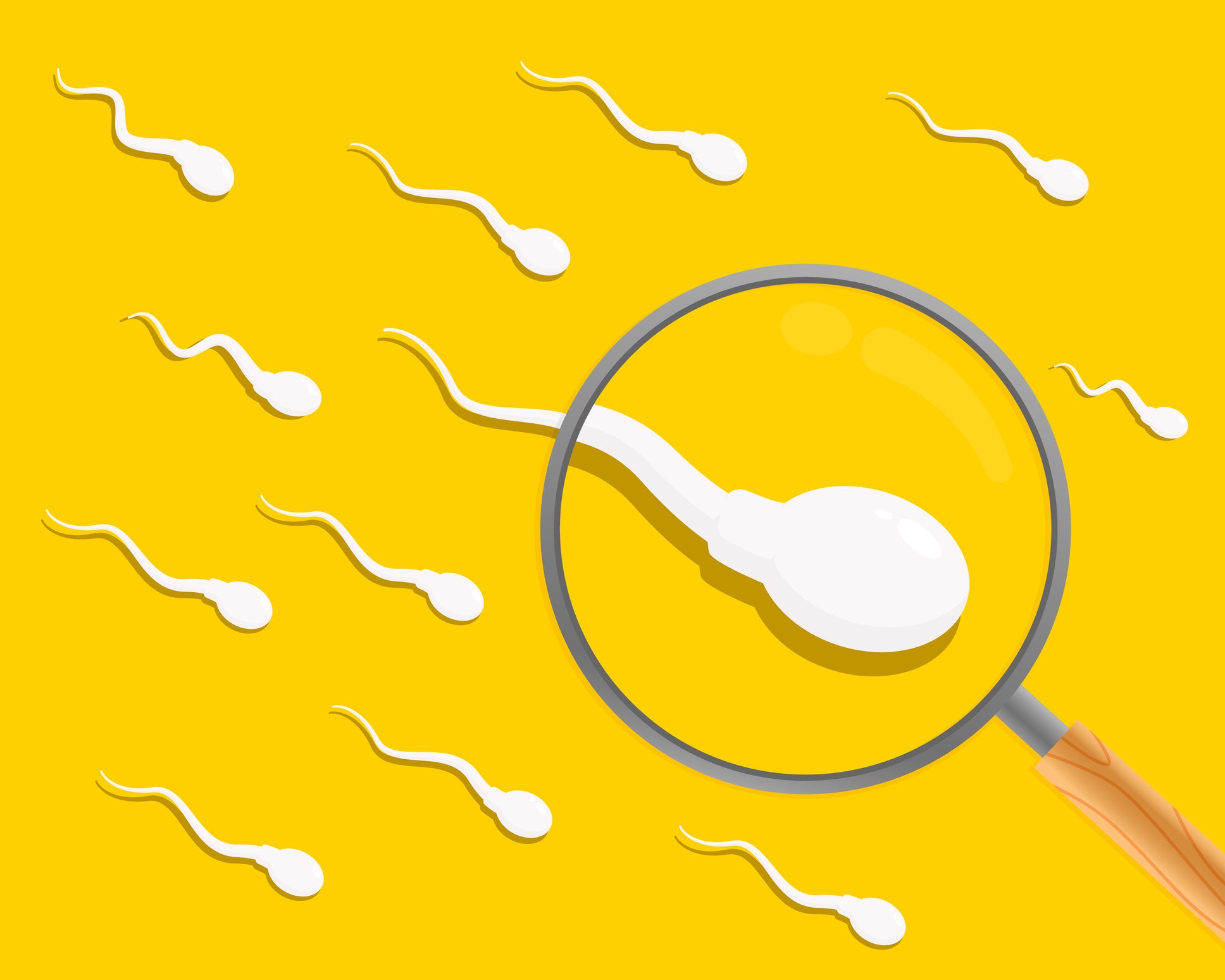-
The Importance of Brotherhood

Close friendships are important for our health and wellbeing, and all humans have an innate desire to connect with others. In a recent survey from the Survey Center on American Life, however, only about one in five men reported receiving emotional support from a friend within the last week. The number is about double that for women. According to that same survey, fewer than half of men are satisfied with their friendships. Why do men have trouble making friends and maintaining friendships? Does it matter?
In a word, yes. Research indicates that men need close friendships with other men to help them cope with anxiety, stress, and depression by providing support and a sense of belonging. The reason men have trouble connecting with other men may be that they’re too busy, have difficulty finding other men with whom they share interests, or simply prioritize work and other obligations over finding and keeping friends. Additionally, because men are conditioned to be independent and self-sufficient, which can make it difficult for them to reach out to others when they need support or companionship. Boys grow up believing that relationships and emotional vulnerability are feminine, and this makes it harder for them to develop true friendships.
Men who do not have close friendships, though, run the risk of emotional isolation, which is a leading factor in medical conditions like diabetes, obesity, Alzheimer’s heart disease, high blood pressure, and more. Often, men mistakenly believe that having a romantic partner is enough, relying on the women in their lives to provide support and allow them to be vulnerable. This, however, can strain a relationship. No one person can be all things to another person, and it’s important to have different people in your life, to provide you with different perspectives. Healthy male friendships are an important part of a man’s community.
What constitutes a healthy male friendship? Open, healthy male relationships have mutual respect, trust, and support, and communicate openly and honestly. There’s also a willingness to be there for each other, during the good times and the bad. Healthy male friendships are built on shared interests and activities, and there’s a balance of give and take. Both men can be open with each other, and there’s a sense of acceptance and confidence to be themselves without being judged. Friendships can evolve and grow over time, as the men pass through different stages of life.
If you are a man who struggles to find friends, how can you go about forging friendships? Start by getting involved in activities that interest you. This is a great way to meet like-minded individuals, and friendships often develop naturally when you interact on a team or in a class. Don’t be afraid to reach out and ask someone if he’d like to have lunch or grab coffee with you, so that you can get to know each other better. Be genuine and a good listener, and be proactive about maintaining friendships, making time for your friends and being there when they need you. Over time, these new friendships can develop into deep, meaningful, long-lasting relationships.
Making friends is important for your mental wellbeing, as well as your physical health. At the Center for Vasectomy Reversal, we are concerned with every aspect of men’s health, and we pride ourselves on helping men improve their fertility through uncompromising, concierge-level patient care. Under the direction of Dr. Joshua Green, our team provides state-of-the-art treatment for men who need a reversal of their vasectomy or have other fertility concerns. To learn more, contact us through our website or call 941-894-6428.
-
How Taking Care of Your Teeth Can Impact Your Overall Health

You know that taking care of your mouth is important, so that you can maintain a healthy smile throughout your life. But did you also know that the health of your mouth has an impact on the rest of your body? Oral health is linked to overall health, so taking care of your teeth is vital. Here, we look at the ways taking care of your teeth can help keep your body healthy.
- How are oral health and overall health connected? It’s easy to think of your mouth and body as separate entities, especially since your dentist and doctor are separate. In fact, though, your whole body is a unit, and since the mouth is the primary pathway into the body, it is important to protect it. The mouth is full of bacteria, and some of these bacteria can cause disease. It’s easy for the bacteria in your mouth to enter your digestive and respiratory tracts, as well as entering the bloodstream through small injuries in the mouth. Without the right oral care, your body is vulnerable to illnesses. What’s more, certain diseases and the medications that are used to treat them can impact your oral health.
- What happens when you neglect your dental health? Inflammation and oral bacteria can increase your risk of certain conditions, including:
- Endocarditis- Bacteria from your mouth or other parts of your body spread through the bloodstream, they can cause an infection of the inner lining of your heart chambers.
- Cardiovascular disease- For reasons not entirely understood, it seems that heart disease, clogged arteries, and stroke are linked to inflammation and infections caused by oral bacteria. Periodontal disease, in particular, seems connected to stroke and clogged arteries, though which causes which has not been determined.
- Complications with pregnancy and birth- Periodontal disease is also linked to premature birth and low birth weight, as well as gestational diabetes, preeclampsia, and stillbirth.
- Pneumonia- When bacteria is pulled into your lungs, it can cause pneumonia and other respiratory ailments.
- What diseases impact your oral health?
- Diabetes puts your gums at risk by reducing the body’s resistance to infection, so people with diabetes are at a higher risk of gum disease. Further, when people with diabetes do get gum disease, it tends to be more severe. It is a reciprocal risk, though, because people who have gum disease have more difficulty controlling their diabetes.
- People who have HIV/AIDS often have oral problems. These include painful mucosal lesions.
- Osteoporosis causes a weakening of the bones. Unsurprisingly, it is linked with periodontal bone loss and tooth loss. Additionally, some of the medications used to treat osteoporosis can be damaging to the bones of the jaw.
- Alzheimer’s disease is connected to worsening oral health. This escalates as the disease progresses.
- What’s the best way to protect your whole body by taking care of your teeth? It starts with brushing your teeth twice a day with a soft-bristled brush and fluoride, and flossing at least once a day. Eat a nutritious diet, limiting sugar consumption, and do not smoke. Consider home dental care tools like mouthwash and a water flosser, and see your dentist twice a year. You might also want to see a periodontist once a year, and talk to your doctor about managing health conditions that could impact your oral health.
At the Center for Vasectomy Reversal, we care about our patients’ overall health, just as much as we care about their reproductive health. We pride ourselves on helping men improve their fertility through uncompromising, concierge-level patient care. Under the direction of Dr. Joshua Green, our team provides state-of-the-art treatment for men who need a reversal of their vasectomy or have other fertility concerns. To learn more, contact us through our website or call 941-894-6428.
-
Are Aphrodisiacs Real
 If you are looking for a way to improve your love life, you may be curious about aphrodisiacs. After all, certain foods and herbs have been the stuff of legends when it comes to the stories of the world’s great lovers. It is said that Casanova ate copious amounts of oysters to maintain his libido, and throughout history, many foods have been considered aphrodisiacs, from chocolate to berries, to artichokes. Is there any science behind aphrodisiacs, or is the power of these love enhancers all in your head?
If you are looking for a way to improve your love life, you may be curious about aphrodisiacs. After all, certain foods and herbs have been the stuff of legends when it comes to the stories of the world’s great lovers. It is said that Casanova ate copious amounts of oysters to maintain his libido, and throughout history, many foods have been considered aphrodisiacs, from chocolate to berries, to artichokes. Is there any science behind aphrodisiacs, or is the power of these love enhancers all in your head?With most popular aphrodisiacs, the libido boost is psychological. Some foods make people think of sex, and since we, as a species, are very suggestible, these foods can help stimulate desire. So, while those strawberries, oysters, and figs may not actually be aphrodisiacs, they are a “turn-on” for many people.
There is a little bit of science behind some foods considered aphrodisiacs. Nuts, grapes, and chocolate have all been shown to help with blood flow, and avocados help keep the hormones in balance. Pomegranates can improve testosterone levels in both men and women, and berries are linked to a reduced risk of erectile dysfunction. So, all of these foods can improve the physical ability to have sex, but they do not stimulate desire.
Alcohol, on the other hand, lowers inhibitions and can increase sexual desire. However, too much alcohol can diminish the physical ability to have sex. So, ironically, the things that make you better able to follow through are not necessarily what causes you to want to, while the substance that makes you want to can diminish your ability to follow through.
While foods don’t typically enhance libido, there are herbs that can definitely have an aphrodisiac effect. Ginkgo increases blood flow to the genitals and improves sexual function, ginseng can heighten sexual excitement, and maca can increase desire. Tribulus can help women get more interested in sex, and fenugreek can increase libido in men. Of course, before you take any herbs, it’s smart to talk to your doctor. Some herbs can actually be dangerous, and some can interfere with certain medications.
When it comes to food, sometimes the placebo effect is powerful, and if you think something is an aphrodisiac, it might work for you. Of course, part of the appeal of most aphrodisiacs is that they are food. Throughout history, bringing food to a loved one has been looked on as a romantic gesture, and this very act can stir sensual feelings. It makes sense, from a biological perspective. Food is necessary to provide energy needed to prolong stamina, and people who are healthy and well-fed have a better shot at reproduction. As fun as sex may be, in the end, the biological drive to mate comes down to building a family. If you want proof that feeding a mate is a universal phenomenon, all you have to do is look to the animal kingdom. There is a species of cricket that makes something like jelly to convince females to mate with them, and spiders catch flies to give to their lady loves in order to convince them to start a family.
At the Center for Vasectomy Reversal, we love helping people grow their families. We pride ourselves on helping men improve their fertility through uncompromising, concierge-level patient care. Under the direction of Dr. Joshua Green, our team provides state-of-the-art treatment for men who need a reversal of their vasectomy or have other fertility concerns. To learn more, contact us through our website or call 941-894-6428.
-
How to Keep Your Heart Healthy

Did you know that heart disease makes up almost 25 percent of all deaths in males in the United States each year? It is the number one killer of men, and half of men who die suddenly of heart disease did not experience symptoms ahead of time. Heart disease is the number one killer of women, too, but it affects more men than women. Fortunately, there are steps you can take to protect your heart health and reduce your risk of heart disease.
There are certain factors that increase your risk of cardiovascular disease. These include:
- A higher than normal heart rate
- High blood pressure
- Diabetes
- High cholesterol
- History of smoking
- Family history of heart disease
- Lifestyle factors
- Obesity
So, what are some signs of heart disease in men? Chest discomfort with physical exertion that goes away when you rest, shortness of breath, jaw pain and pain in the left arm are all symptoms. Cold sweat and nausea are also typical signs of heart disease. Atypical symptoms include a feeling of faintness or light-headedness, a squeezing sensation in the back, and abdominal discomfort.
Of course, there are different symptoms for different heart problems. A heart attack can cause pain the chest, left arm, and jaw, a feeling of pressure or heaviness, sweating, nausea, vomiting, and sudden shortness of breath. Heart failure, on the other hand, causes shortness of breath during exercise or while lying flat in bed, waking up gasping for air in the middle of the night, and swelling in the ankles.
So, what can you do to keep your heart healthy? It starts with awareness. Know your family history, to understand your genetic risk. Pay attention to your overall health, too, having your blood pressure and blood sugar checked regularly. Keeping your blood pressure, heart rate, cholesterol, blood sugar, and waist circumference numbers in the healthy range can go a long way towards protecting you against heart disease, so make sure you’re paying attention to these numbers. Additionally, take the following measures to stay in good heart health.
- Exercise regularly. Aim for 150 minutes of moderate exercise or 75 minutes of vigorous exercise every week. Aerobic exercise is great for your heart, so try biking, swimming, or even just taking a walk. Practicing yoga is another good way to get in some exercise, and it can help with stress reduction as well.
- Eat a nutritious diet. Pack your diet with nutrient-dense foods, like berries, spinach, avocado, and fish with omega-3 fatty acids. Plant-based and Mediterranean style diets are good for your circulatory system, and eating enough fiber is good for your heart. Cut down on unhealthy fats like butter, high-fat meats, and fried foods, and increase your intake of good fats, found in salmon, nuts, and seeds, as well as some vegetables. Talk to your doctor about supplements that can help support your heart health. While you are eating well, make sure to limit your alcohol intake and drink plenty of water.
- Get enough sleep. Sleep is restorative, and helps your body repair itself. Deep sleep helps blood pressure to regulate and can decrease stress. The amount of sleep that’s needed varies from person to person, but it’s generally somewhere between six to eight hours a night.
- Manage your stress. Stress is a major risk factor for heart disease, especially continuous stress or stress that is handled with unhealthy behaviors like smoking, overeating, or reacting with hostility. Look for ways to lower your stress and find ways to manage the stress you can’t avoid. Meditation, yoga, breathing exercises, mindfulness, and even just brief period of rest are all good stress reducers.
- Don’t smoke. It is somewhat surprising that anyone still smokes in this day and age, when we know how bad it is for our bodies. Smoking can damage your arteries and other blood vessels, raise your risk of developing blood clots, and cause inflammation that hurts your heart. What’s more, chemicals in cigarette smoke cause plaque build-up in the arteries that is a major cause of heart disease. The good news? The minute you quit smoking, your risk of heart disease begins to drop.
- Take care of your teeth. Poor dental health can raise your risk of a heart attack. In fact, multiple studies have shown a connection between bacteria from gum disease and tooth decay and heart disease, because that bacteria can travel through the bloodstream from your mouth to your heart.
- Talk to your doctor about medication. If your risk of heart disease is amplified by another condition, ask about medication that can help manage it. Your doctor may want you to take blood pressure medication, for example, or medication to combat high cholesterol. Brush twice daily, floss once a day, and see your dentist twice a year to protect the health of your mouth and your heart.
Interestingly, there is a link between heart health and erectile function. This is because the penis, like the heart, depends on healthy blood flow and blood vessels to work properly. What’s more, some of the same conditions that increase your risk for heart disease also increase your risk of erectile dysfunction. These include hypertension, diabetes, smoking, and increased body weight. Interestingly, low testosterone creates a higher risk of heart trouble, but testosterone levels that are too high can also increase your risk of heart attacks and blood clots. Working with your doctor to stay in a healthy range can improve both your heart health and your fertility.
At the Center for Vasectomy Reversal, we pride ourselves on helping men improve their fertility through uncompromising, concierge-level patient care. Under the direction of Dr. Joshua Green, our team provides state-of-the-art treatment for men who need a reversal of their vasectomy or have other fertility concerns. To learn more, contact us through our website or call 941-894-6428.
-
How Staying Hydrated Can Improve Your Reproductive Health

By now, you know that drinking water is good for you. It flushes toxins from the body, lubricates your joints, gives you better skin, and just basically makes all your body’s systems work a little bit better. Did you know, though, that staying hydrated can improve your reproductive health? Read on to learn more about this somewhat surprising fact.
First, let’s just point out that water keeps all of the organs and cells in your body functioning the way they should. This includes the reproductive cells, egg and sperm, along with the reproductive organs, the brain, ovaries, uterus, testes, and thyroid. Men need to stay properly hydrated so that semen production and volume stay at the right level. Sperm in semen thickened by dehydration will have trouble swimming.
For men, the need to drink water for a healthy reproductive system goes much deeper than that, though. Drinking enough water increases the plasma and blood volume in your body, allowing blood vessels and arteries to work more effectively and oxygenating the vital organs. When a person is dehydrated, the blood vessels and arteries conserve water by restricting blood flow to the organs. For men, this means that there will not be enough blood circulating in the penis to allow for a firm erection. Water also helps slow the aging process by flushing out toxins and free radicals, and when you’re hydrated, you have more energy for whatever you’re doing, including sex. Being dehydrated cases the body to release stress hormones that interfere with your natural hormone levels and make you feel fatigued. To sum up, drinking more water leads to a healthier sex drive, better erectile function, and better sperm quality.
Is drinking water as important for women as it is for men? Absolutely! For women, dehydration can result in poor egg health. It can also mean less cervical mucus, which is important for transporting sperm to the fallopian tubes. If she does get pregnant, her body will need water to create the right environment for the growing embryo. Water plays key roles in every aspect of fetal development, from fertilization through birth. It helps carry nutrients to the placenta, flushes toxins away, and makes the uterus a hospitable place.
So, how much water is necessary for good overall health, including reproductive health? A good rule of thumb is to drink enough ounces of water to correspond with the number of pounds in half your weight. You can tell if you’re properly hydrated because your urine will be pale, like straw or lemonade. Urine that is a deep, dark yellow means you are dehydrated. However, if your urine is colorless, you are drinking too much water, and this can cause your body to lose important salts and electrolytes. You can also tell if you are dehydrated if you are not urinating enough throughout the day. A healthy person should need to urinate seven to eight times each day. Paying attention to how much water you are drinking each day and making sure you’re not dehydrated can be an important part of starting your family.
At the Center for Vasectomy Reversal, we love making the world better by helping people start healthy, happy families. We pride ourselves on helping men improve their fertility through uncompromising, concierge-level patient care. Under the direction of Dr. Joshua Green, our team provides state-of-the-art treatment for men who need a reversal of their vasectomy or have other fertility concerns. To learn more, contact us through our website or call 941-894-6428.
-
How Low Testosterone Can Affect Your Sperm Health

Low testosterone levels can have a serious effect on your sperm health. It’s important to understand why testosterone is so important for effective sperm production, and how you can keep your sperm healthy even if you have low testosterone. In this blog post, we will discuss the relationship between testosterone and sperm health, as well as the potential treatments available to ensure your sperm are in top condition.
What is Testosterone?
Testosterone is a hormone produced by the male body that helps stimulate reproductive organs including the testicles, prostate, and seminal vesicles. It is responsible for the development of secondary sexual characteristics such as facial hair growth, deepened voice, and increased muscle mass. Testosterone plays an important role in maintaining proper sperm production and fertility.
The Role of Testosterone in Sperm Health
Low testosterone levels can lead to decreased sperm count, poor motility (movement), lower quality DNA integrity, and reduced overall semen volume. These factors can all contribute to infertility or difficulty conceiving naturally. Low testosterone levels can also lead to erectile dysfunction or reduced libido which can further impact fertility issues.
Signs That Your Testosterone Levels May Be Too Low
Low testosterone levels can have a huge impact on your health. If you are concerned that your testosterone levels might be too low, read on to learn eight signs that may indicate a problem:
- Decreased Muscle Mass: Muscle mass is an indicator of healthy testosterone levels. If you find that you are losing muscle mass even though you are exercising regularly, it could be a sign that your testosterone levels are dropping.
- Fatigue: Testosterone plays a role in energy production in the body. If you tend to feel tired throughout the day or find yourself needing frequent naps, it could be due to low testosterone levels.
- Loss of Libido: Low testosterone can cause changes in libido, including difficulty getting aroused and decreased sexual desire.
- Decreased Bone Density: One benefit of healthy testosterone levels is increased bone density and strength in men over 30 years old; however, low T-levels can lead to weaker bones and an increased risk of fractures and other injuries.
- Hair Loss: Hair loss is another common symptom associated with lower-than-normal testosterone levels; however, this condition is often attributed to genetics rather than hormone imbalances – so hair loss does not always mean that there’s something wrong with your hormones!
- Irritability: If you’re feeling especially irritable lately, or if small things seem to bother you more than usual, it could be related to lower-than-normal T-levels. A blood test will help determine whether hormonal imbalance may be at play here.
- Difficulty Concentrating: If you find yourself having difficulty concentrating on tasks at work or school lately – or simply having trouble remembering things – then low T-levels may indeed be part of the problem!
- Mood Swings: Mood swings can sometimes occur when testosterone levels become too low. While they aren’t necessarily dangerous (as long as they don’t interfere with daily life), they can indicate an underlying hormonal imbalance that should be addressed, if possible, through lifestyle changes or medical intervention from Centers for Vasectomy Reversal specialists.
Male Fertility Testing Services
The Center for Vasectomy Reversal has many years of experience providing comprehensive male infertility testing services designed specifically to identify any issues related to low testosterone or other issues impacting sperm health that may be preventing conception naturally– contact us today to learn more!
-
How to Improve Your Health in 2023

It’s hard to believe another year has come and gone, yet here we are, planning resolutions for 2023. What will your health resolutions be? We have some suggestions for improving your health over the course of the next year.
First, consider this: most resolutions are likely to fail, because there’s no real plan behind them or strategy for success. To succeed, we must break old habits and form new ones, and this is difficult to do. The first step is setting goals, but to succeed, you need to set the right goals. Look at your lifestyle and habits honestly, noting how they impact your health so that you can know what needs to be modified. Make your goals realistic, set up an environment that will help you succeed, and track your progress, giving yourself credit for everything you do right along the way.
- Pledge to get more exercise. This doesn’t mean you should invest in a gym membership or buy expensive equipment for your home gym. If you’re sedentary, it’s enough to work regular physical activity into your everyday life. Not that there’s anything wrong with the gym, and if that works for you, go for it. Find exercise that you enjoy and do it consistently, not just to lose weight, but to promote your overall health.
- Cut back on your substance use. Quitting harmful substances like alcohol, cigarettes, and drugs is one of the best things you can do to improve your health. This may require external help to break your addiction and detoxify your body, but as soon as you quit smoking or reduce your drinking, your health will begin to improve.
- Prioritize sleep. If you’re like a lot of people, you work long hours and don’t get enough sleep. You may not realize it, but your sleep deprivation is taking a toll on your physical and mental health. Sleep deprivation increases the risk of many different health issues, from heart disease to depression. Make quantity and quality sleep a priority this year, and you’ll feel better and be more productive.
- A nutritious diet is essential for a healthy life. Fill yours with fruits, vegetables, and other plant-based foods, along with lean proteins like chicken and fish, and you’ll reduce your risk of heart disease, obesity, diabetes, and some types of cancer.
- Men have particular health needs to address. There are certain diseases that disproportionately affect men, like cardiovascular disease, Parkinson’s disease, alcoholism, and skin cancer. The primary cancers that affect men are prostate cancer, colon cancer, and lung cancer. Talk to your doctor about your risk for these diseases, and how to make lifestyle changes that will reduce those risks.
- Routine screenings are important. Preventing disease is much more effective than treating it. Make sure you get the right screenings, including general screenings for high blood pressure, diabetes, and cholesterol. Go further, though, asking your doctor about screenings for cancer, contagious diseases, and mental health issues. While you’re at it, make sure you’re up to date on your vaccines, including the vaccines for tetanus, shingles, and pneumonia.
- Make mental health a priority. Men are less likely to seek help for mental health disorders than women, even though they’re just as likely to experience them. Talk to your doctor if you’re feeling anxious or depressed, and in the meantime, try these tips for protecting your mental health:
- Let the little things go.
- Don’t compare yourself with others.
- Set healthy boundaries.
- Keep your mind and body active.
- Step away from social media when it begins to affect you adversely.
- Don’t be afraid to seek help.
At the Center for Vasectomy Reversal, we care about men’s health. We pride ourselves on helping men improve their fertility through uncompromising, concierge-level patient care. Under the direction of Dr. Joshua Green, our team provides state-of-the-art treatment for men who need a reversal of their vasectomy or have other fertility concerns. To learn more, contact us through our website or call 941-894-6428.

-
Everything You Need to Know About Freezing your Sperm

Why do men freeze their sperm? There are, of course, sperm banks where men can donate sperm to childless couples. This sperm is frozen and kept until it’s needed, but that’s certainly not the only reason for freezing sperm. Men who have been diagnosed with cancer may bank their sperm if their treatment plan is likely to cause infertility. Similarly, men who are undergoing surgery or treatment that could impact their chances of conceiving a child might want to freeze their sperm, and so might men with hazardous jobs. Most commonly, though, couples decide to freeze sperm- and eggs- because they want to wait a little while to grow their families. If you fall into any of these categories, and are considering freezing your sperm, here’s what you need to know.
- Sperm-freezing, also known as semen cryopreservation, is simpler and less invasive than freezing eggs. In fact, while most samples are collected at the fertility clinic, there are home kits available for men who don’t feel comfortable in a clinical setting. Men with low sperm counts are encouraged to freeze a sample ahead of IVF, in case their fresh sample does not contain sperm when it’s time to perform the procedure.
- The cost of freezing sperm varies and is dependent on several different factors. The price includes the entire process, from collection through storage, and varies based on location, individual clinic, and insurance. Typically, it costs anywhere from $250 to $1,000. However, if you intend to store your sample for a long time, the storage costs can really add up. Then, too, there are medical shipping costs to move the sperm from the place where they’re stored to the place where they’ll be used. It’s smart to have a plan in place before you get started, and work with a fertility clinic.
- Some men are better candidates for sperm freezing than others. Healthy people can bank sperm. In fact, even children who have been diagnosed with cancer can bank sperm, for the sake of future fertility. Men who are undergoing chemotherapy should not bank their sperm, and men who have no sperm in their semen won’t be able to, either.
- A doctor has to make the request to bank your sperm. The choice to freeze sperm is a personal one, and one you’ll need to discuss with your doctor. Testing will be required, to screen for sexually transmitted diseases as well as assessing the sperm quality.
- Sperm freezing is low risk. There are no risks to the men themselves, but there is a risk that when the sample is frozen, it may not actually contain sperm. Freezing doesn’t damage sperm, and there’s no increased risk of birth defects for children conceived with frozen sperm. Sperm freezing has been done since 1953, and it’s a very effective method of preserving fertility.
- Men who want to hold off on fatherhood should bank their sperm. Men can father children late in life, so they don’t have the same biological urgency as women to conceive in a certain time frame. However, the risk of certain conditions, including autism, increases when a man passes age 50, so if he’s planning to conceive after that, it’s better to preserve the sperm in advance.
- Semen has no expiration date. Theoretically, sperm can be frozen forever, as long as it’s stored correctly. Sperm that has been frozen for 20 years has still been used to successfully conceive a child.
- Here’s how the process works. Before the appointment, you’ll be asked to abstain from sexual activity for two or three days. Once you get to the clinic, there’s paperwork and bloodwork, and then the sample is collected. Freshness impacts fertility, so it’s best to collect it at the clinic. Once the sample is in the cup, the sperm is analyzed for quantity, shape, and movement, to determine whether more samples are necessary. The sample is divided into different vials and frozen by an experienced lab technician trained to protect the sperm cells with cryoprotectant agents.
Many men freeze sperm before undergoing a vasectomy, but if that wasn’t the case for you, there’s still hope. At the Center for Vasectomy Reversal, we pride ourselves on helping men improve their fertility through uncompromising, concierge-level patient care. Under the direction of Dr. Joshua Green, our team provides state-of-the-art treatment for men who need a reversal of their vasectomy or have other fertility concerns. To learn more, contact us through our website or call 941-894-6428.

-
The Best and Worst Holiday Foods to Eat

It’s the holiday season, and that means plenty of opportunities for feasting. It doesn’t matter, because the foods you eat at the holidays don’t count, right? Well, not so fast. Research indicates that weight gained over the holidays tends to stick around, and a 2013 study showed that people gain about two pounds on average during this festive time of year, along with increasing their body fat, blood pressure, and heart rate. So, does that mean you have to forego the holiday meals and sit dolefully eating steamed veggies all season? No, but there are a few favorites that you might want to skip.
- We have some bad news about eggnog. Packed with sugar, eggs, and cream, it’s full of calories, cholesterol, and saturated fat. In fact, drinking a cup of eggnog is approximately the nutritional equivalent of eating two glazed donuts. What’s more, homemade eggnog often contains raw eggs, which can be a health hazard. Does this mean you should only drink water all season? Water is great for your body, but if you want something a little more festive, hot cocoa is a good egg-nog alternative. Not only can it be made to have far fewer calories and much less fat, using unsweetened cocoa, low-fat milk, and minimal sugar, but hot cocoa contains flavanols, a type of antioxidant that can improve blood vessel function. One study even found that cocoa boosts blood circulation in the brain and may even enhance cognitive function.
- Pecan pie and mincemeat pie are definitely on the naughty list. Because pecan pie is made with karo syrup and sugar, this sweet treat weighs in at about 500 calories, 27 grams of fat, and 15 teaspoons of sugar in a single slice. Mincemeat pie is made of sugar, butter, shortening, and eggs, and has almost as many calories and as much fat and sugar as pecan pie. Want some better options? Oatmeal raisin cookies have the flavor of mincemeat for far less nutritional cost, and gingerbread is a great option because lower fat and calorie content than many cookies. It contains molasses, too, which means it’s a good source of iron. Pumpkin pie is also a more nutritious sweet. Full of beta carotene, it also has half your recommended daily allowance of vitamin A.
- Stuffing and potatoes can be good or bad, depending on how they’re prepared. When stuffing is prepared with butter and turkey fat, it’s high in fat and calories. Made with vegetables and stock, baked outside the bird instead of inside it, it becomes a healthier option. Potatoes made with butter and cream or smothered in gravy are also a poor choice, but if you make your mashed potatoes with milk or non-fat Greek yogurt, or you roast them and sprinkle them with rosemary, you’ll reap the benefits of the potatoes themselves. Potatoes are low calorie, low carb, and full of nutrients like potassium, magnesium, iron, and vitamin C. Sweet potatoes are also packed with nutrition, with vitamins A and C, antioxidants, and fiber, and they don’t need sugar, butter, and marshmallows to make them flavorful and delicious.
- Skip the prime rib if you’re trying to make your holiday table healthful. The reason prime rib is so succulent is that it comes from the fattiest part of the cow. If your holiday traditions call for beef, you’re better off with a leaner cut like sirloin.
- Turkey is a holiday tradition worth keeping. Without the skin, a four-ounce serving of turkey breast only contains 168 calories and two grams of fat! It also has plenty of protein, along with vitamins B3, B6, and B12, selenium, zinc, phosphorus, choline, magnesium, and potassium.
- There are other holiday favorites worth the indulgence, as well. Cranberries are powerhouses of nutrition, boasting healthy amounts of vitamin C, manganese, vitamin E, vitamin K, copper, and plant compounds known as polyphenols, which can help the body process glucose. Commercial cranberry sauces are full of sugar, but you can cut back if you’re making it at home, or replace it with fruit juice. Nuts, especially chestnuts, are healthy holiday fare, and shrimp cocktail is a festive appetizer that’s low in fat and calories and high in nutritional value.
A healthy lifestyle means packing your plate with nutritious foods, and a healthy diet can help promote a healthy pregnancy. At the Center for Vasectomy Reversal, we love helping people start families with healthy pregnancies. We pride ourselves on helping men improve their fertility through uncompromising, concierge-level patient care. Under the direction of Dr. Joshua Green, our team provides state-of-the-art treatment for men who need a reversal of their vasectomy or have other fertility concerns. To learn more, contact us through our website or call 941-894-6428.
-
How Alcohol Can Affect Your Sperm Health

When it comes to pregnancy, women hear a lot about the negative impact of drinking alcohol. It’s commonly understood that women should cut down their drinking when they’re trying to conceive and stop drinking entirely once they become pregnant. What is less known is the effect alcohol has on a man’s fertility. How does alcohol affect your sperm health? Should men be concerned enough to cut back when trying to conceive a child?
- Alcohol definitely affects male fertility. Multiple studies back up this fact. This is because alcohol consumption impacts sperm health, and the quantity and quality of sperm determines how easy it will be to conceive. Drinking heavily can lower testosterone levels and raising estrogen levels, thereby reducing sperm production. Alcohol consumption can also cause early or decreased ejaculation and alter the size and movement of sperm. If you use drugs like marijuana or opioids with alcohol, you can further lower fertility. Alcohol can also affect your overall health, raising your risk of conditions like cardiovascular disease, diabetes, cancer, liver disease, anxiety, and depression. It can diminish your libido, making it more difficult to conceive.
- How much you drink matters. The occasional drink won’t cause much damage, although even in moderate amounts, it can cause a loss of libido. However, heavy, consistent drinking can cause a major problem, as can binge drinking. A man who has five or more drinks is at risk of sperm damage, and having more than 14 mixed drinks in a week can affect sperm count and lower testosterone levels. It’s recommended that men have no more than four drinks in a day or 10 in a week, but one in four men drink more than this.
- The damage is reversible. This is great news! Even if you’ve been a heavy drinker, if you stop drinking, it will only take about three months for healthy sperm production to return. To reduce your drinking, try scheduling a few days each week that are entirely alcohol free. Set limits on yourself, and when you are drinking, alternate alcoholic beverages with non-alcoholic. Don’t drink without eating something, and limit how much alcohol you keep in the house. If you use alcohol to de-stress, consider finding other ways to manage your stress, like exercising or picking up a hobby.
- A healthy lifestyle promotes fertility. The same factors that promote health in other systems of the body are important for male fertility. If you’re trying to conceive a child, exercise regularly to boost your testosterone levels. Keep your cortisol levels down by managing your stress. Get plenty of sleep, and eat a nutrient-dense diet, talking to your doctor if you have questions about your nutritional needs.
If you are struggling with fertility, because of a vasectomy or another issue, contact the Center for Vasectomy Reversal. We pride ourselves on helping men improve their fertility through uncompromising, concierge-level patient care. Under the direction of Dr. Joshua Green, our team provides state-of-the-art treatment for men who need a reversal of their vasectomy or have other fertility concerns. To learn more, contact us through our website or call 941-894-6428.
Recent Posts
Popular Posts
categories
- Uncategorized
- Sperm Retrieval
- vasectomy reversal
- Emergency
- Dr. Green
- sperm count
- fertility
- male infertility
- MESA
- medical care
- low sperm count
- IVF
- male fertility testing
- anesthesia
- pregnancy
- sperm aspiration
- semen analysis
- post-vasectomy pain syndrome
- infertility
- VE
- anti-sperm antibodies
- older dad
- general anesthesia
- gender reveal party
- post-operative infections
- baby name
- parent
- baby's first year
- fertilization process
- spinal anesthesia
- ACS Fellow
- nutrition tips
- concierge-level care
- fertility planning app
- azoospermia
- out-of-town patients
- V-V
- post-vasectomy reversal
- conceiving
- vasectomy
- vasoepididymostomy
- smoking
- sperm quality
- baby registry
- infographic
- surgical care
- surgical consultation process
- prostate cancer
- baby gender
- family time
- COVID
- Baby Shower
- Child Care
- Halloween Costume Ideas for Babies
- Halloween
- Halloween Safety Tips
- Celebrity Infertility Spotlight
- Postpartum
- testosterone
- Father's Day
- Father
- Men's Health
- Thanksgiving
- Pregnancy Announcement
- Parenting Tips
- Sperm
